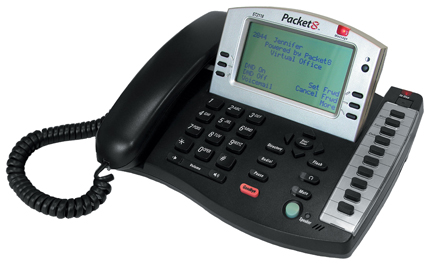Packet8 shows profitability is achievable in pure-play VoIP

Arguably, the three highest profile, full-fledged VoIP services to flash across our radar screen in the last year or two have been SunRocket, Vonage, and 8x8' s Packet8 service.
SunRocket, of course, is gone. Vonage, which traded yesterday at an all-time-low of $1.86 a share, is a money loser with a bunch of pessimistic investors.
But Packet8? Parent 8x8 announced their quarterly fiscals yesterday, and hey guess what they made a profit.
So why is 8x8 now profitable while erstwhile competitors can only dream of green ink?
I think it has a lot to do with prudent but decisive management who lives in the real world rather than in some sort of reality distortion field full of meaningless promotional announcements, glittery sponsorships, spiraling down pricing and cute but expensive ads.
8x8 says:
Total revenues for the first quarter of fiscal 2008 increased to $14.7 million compared to $14.4 million for the previous quarter, and $12.3 million for the same period of fiscal 2007, an increase of 20%. Packet8 Virtual Office revenue grew sequentially by 23% over the previous quarter, while residential revenue declined 5%. Gross margins grew to 64%, up from 54% in the previous quarter, and Packet8 service margins grew to 70% from 62% in the previous quarter.
As of June 30, 2007, over 8,000 U.S. based businesses subscribed to the Packet8 Virtual Office service. Packet8 Virtual Office revenues represented 44% of the Company's total revenues in the June quarter, up from 37% in the March quarter.
Notice something? Packet8 has decided there is a sweet spot between depending too much on consumer revenue and pursuing the small office market. I know Vonage and SR pursued that market, but just calling a service line "small business" doesn't make it so.
Action, not reality-distortion-field happy talk, bargain basement pricing and woohoo wasn't needed. Packet8 Virtual Office, however, has done what needs to be done-providing equipment and plans for small businesses that want Internet voice but aren't large enough for Asterisk-based solutions, and don't want to entrust their communications to IM-based telephony like Skype.
